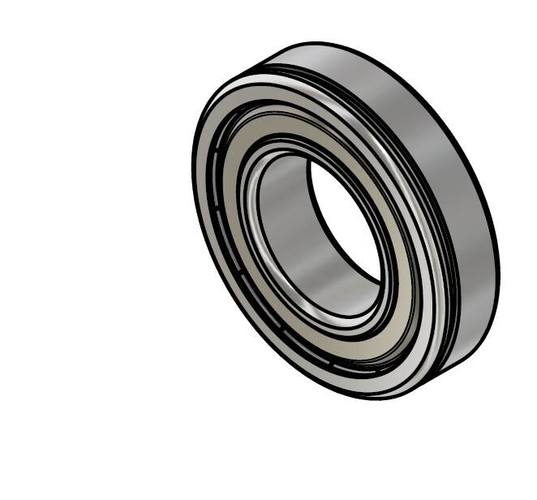Top Ceramic Ball Bearings Suppliers: Quality, Applications
Introduction
In precision engineering, ceramic ball bearings suppliers play a pivotal role in delivering components that redefine mechanical performance. These advanced bearings combine exceptional durability with unmatched operational efficiency, making them indispensable in industries requiring high-speed, low-friction solutions. This comprehensive guide explores key considerations when partnering with ceramic ball bearings suppliers while highlighting technological advancements shaping this sector.
What Are Ceramic Ball Bearings?
Ceramic ball bearings utilize silicon nitride or zirconium oxide balls within steel races, offering superior performance over traditional steel bearings. Suppliers specializing in these components address critical needs for thermal stability, electrical insulation, and corrosion resistance. The non-metallic composition eliminates cold welding risks in vacuum environments, making them ideal for aerospace and semiconductor applications.
 Key Advantages of Ceramic Bearings
Key Advantages of Ceramic Bearings
Leading ceramic ball bearings suppliers emphasize these benefits: 80% reduced friction compared to steel, 60% lighter rotating mass, and 10x longer service life in contaminated environments. These properties enable energy savings up to 30% in industrial motors while maintaining precision in extreme temperatures (-200°C to 900°C). Medical equipment manufacturers particularly value their MRI compatibility and sterilization resilience.
Industrial Applications
Premium ceramic ball bearings suppliers serve diverse sectors: 1) Automotive: Turbochargers and EV drivetrains 2) Aerospace: Satellite mechanisms and jet engine components 3) Manufacturing: CNC spindles and robotic arms 4) Energy: Wind turbine pitch controls 5) Medical: Surgical robotics and imaging devices. Case studies show 40% maintenance reduction in food processing conveyors using ceramic bearings from certified suppliers.
Selecting Reliable Suppliers
Evaluate ceramic ball bearings suppliers using these criteria: ISO 9001/AS9100 certification, material traceability, custom engineering capabilities, and proven performance in your industry. Top suppliers provide comprehensive testing reports including HIP (Hot Isostatic Pressing) validation and surface roughness measurements below 0.05μm Ra. Consider vendors offering hybrid options (ceramic balls with stainless races) for cost-sensitive applications.
Market Trends
The global ceramic bearings market (projected $1.2B by 2028) drives innovation among suppliers. Emerging developments include graphene-coated hybrids for extreme pressure resistance and 3D-printed custom geometries. Environmentally conscious suppliers now offer recycled zirconia bearings with 95% lower carbon footprint than conventional production methods.
FAQs
- Q: How do ceramic bearings compare in cost?
A: Initial costs run 2-3x higher than steel, but lifecycle savings typically yield ROI within 18 months. - Q: Can ceramic bearings handle heavy loads?
A: Advanced suppliers now offer hybrid designs supporting dynamic loads up to 120kN. - Q: What lubrication is required?
A: Many ceramic bearings operate dry, while others use thin-film coatings for harsh conditions. - Q: Are custom sizes available?
A: Top suppliers provide bearings from 3mm to 300mm diameters with ±0.5μm tolerances. - Q: How to verify supplier quality?
A: Request CMM reports, material certifications, and accelerated life testing data.
Conclusion
Partnering with expert ceramic ball bearings suppliers ensures access to cutting-edge solutions that enhance equipment performance and longevity. For technical specifications or custom project consultations, contact our engineering team to discuss your application requirements.




 13869596835
13869596835